Five talking points from the World Championships 2021 elite men's road race
The greatest ride of Alaphilippe's career, the unlikely medallists, and the best Brit - don't miss these moments from an unforgettable race
Alaphilippe defends title with possibly greatest ride of his career
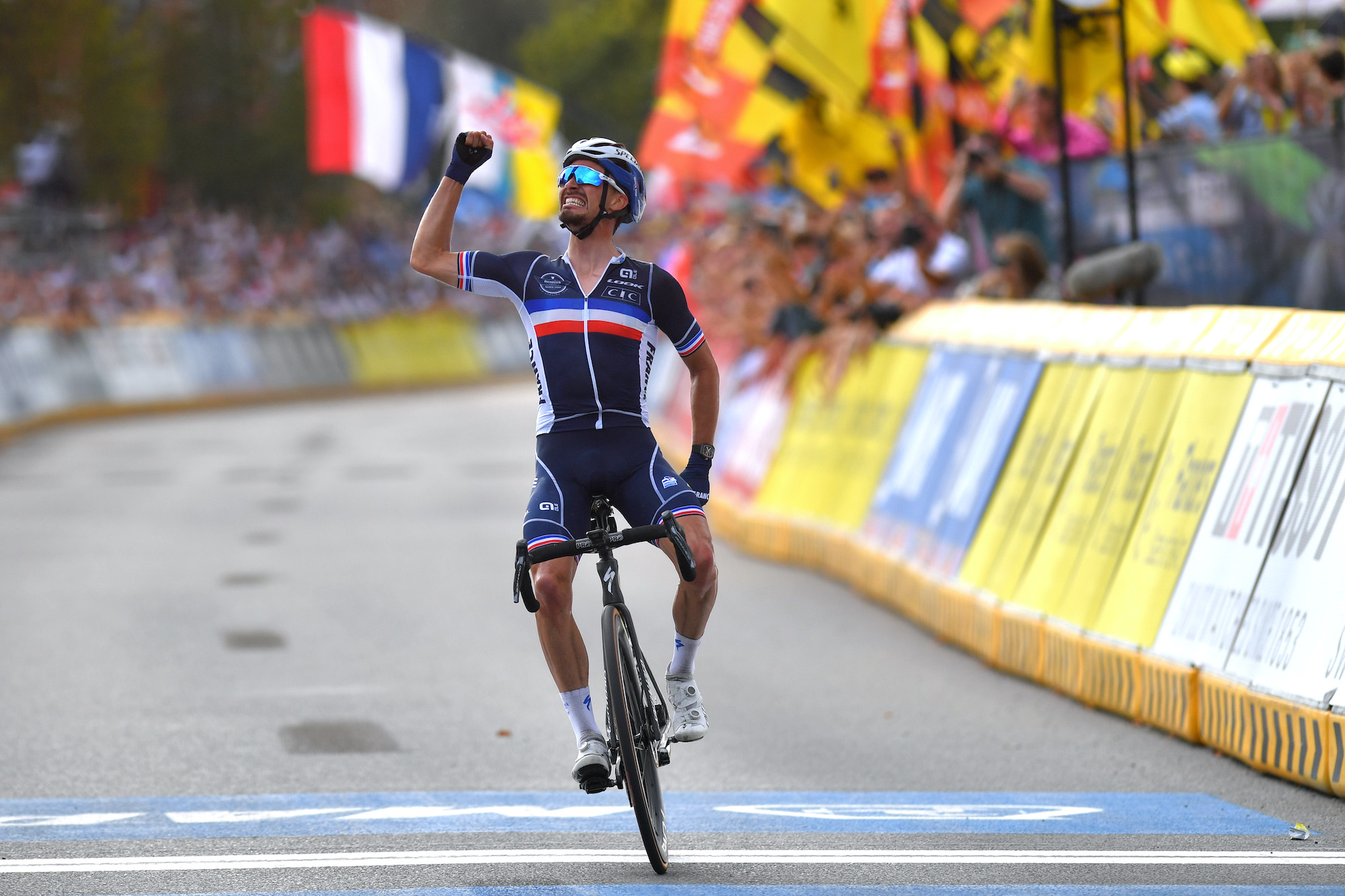
Julian Alaphilippe wins the 2021 Road World Championships
Eyebrows were raised when Julian Alaphilippe opted to skip the Olympics earlier this season. The Frenchman explained that he was prioritising preparation for a defence of his World Championships title, but it still felt like an unusual decision, considering that the Olympics only comes around every four years, and that Alaphilippe would have likely been a top contender for gold.
We’ll never know how Alaphilippe would have gone in Tokyo, but skipping them did indeed seem to do wonders for his form for this race, in which Alaphilippe was astonishingly strong.
We’ve seen many sublime rides by Alaphilippe in the past, but this might just have been the strongest he has ever looked. It wasn't just the way he broke clear from the group of favourites with the race-winning move on the Sint-Antoniusberg climb 17.5km from the finish. It was the fact that that attack was one of several, starting with a huge dig on the Smeysberg as far out as 50km from the finish.
Any one of those moves would have been enough to exhaust the resources of most riders, but Alaphilippe had the reserves to keep on recovering and keep on attacking, until at last his rivals were broken and left for dust.
Then, somehow, he still had the legs to extend his advantage over a chasing quartet, and solo all the way to the finish for victory. He eventually crossed the line with plenty of time to soak in the atmosphere and celebrate his victory, and with over thirty seconds still to spare.
It was a highlight in what has been a wonderful career, and the cycling world will now get to enjoy another twelve months of Alaphilippe in the rainbow jersey.
Aggression rewarded in one of the most exciting Worlds races in recent memory
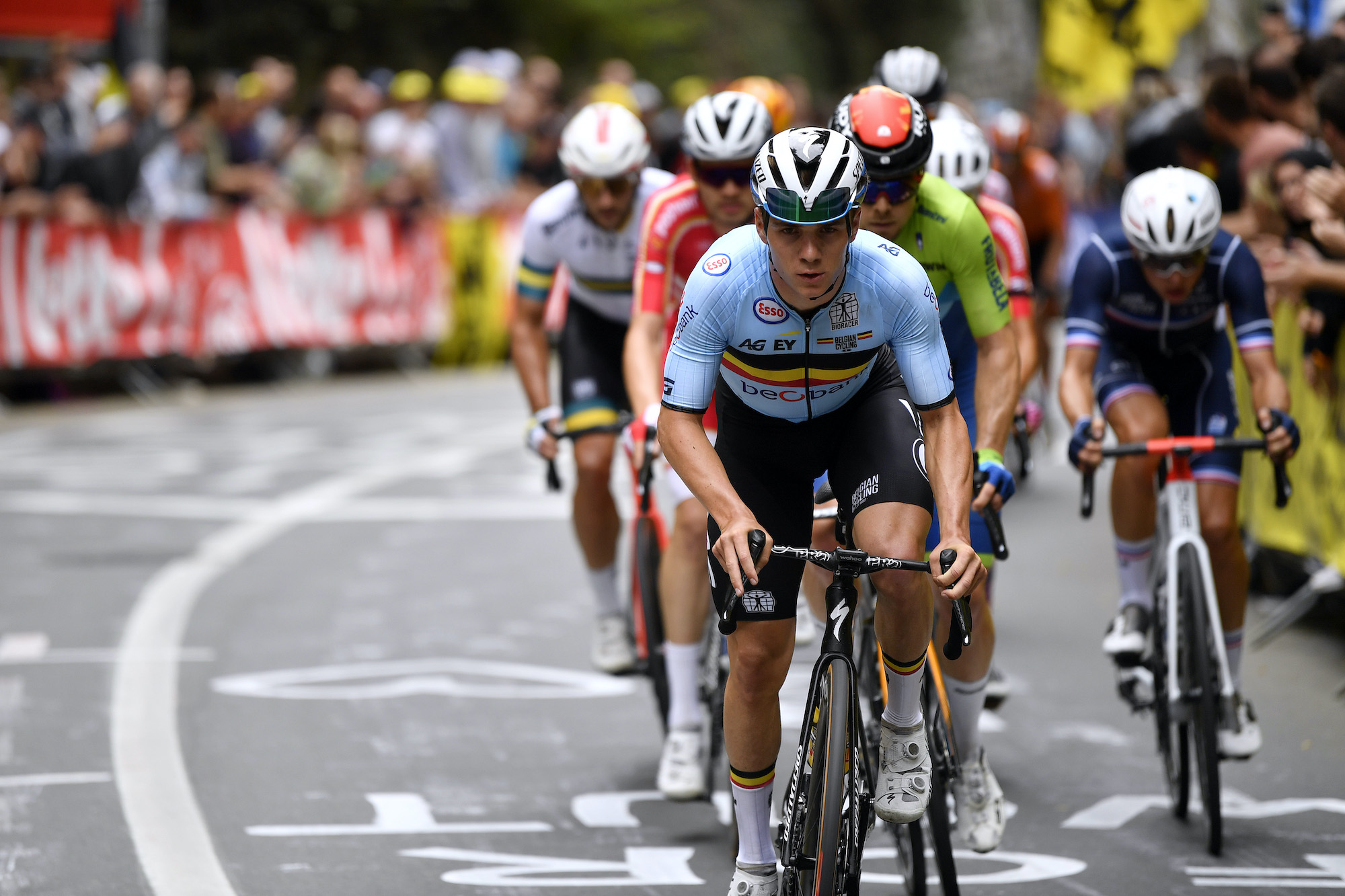
Remco Evenepoel
It’s no overstatement to say that this was one of the most exciting men’s Worlds road races of recent decades.
Get The Leadout Newsletter
The latest race content, interviews, features, reviews and expert buying guides, direct to your inbox!
Usually the Worlds can be a bit of a slow burn, with the tension building gradually before exploding into life during the last few laps, but this race — much like many of those held here in Flanders earlier this season in the spring — got going outrageously early.
The French were largely responsible for the aggressive way the race unfolded — which perhaps should come as no surprise given that Thomas Voeckler is their coach, given the way he used to ride as a pro. Classics stars like Anthony Turgis and Benoît Cosnefroy were making committed moves absurdly early, and the latter instigated the dangerous move that ignited the race during the first time around the Flandrien circuit, a whole 175km from the finish.
Once that attack was eventually closed down by the Italians, the French persisted with countless more attacks, and had representation in the next move to go 90km in the shape of Valentin Madouas. It was another very dangerous move, with Evenepoel again present.
All this served the purpose of making for a very tough race, and set the stage for Alaphilippe to land the killer blow in the finale. Given that Alaphilippe ultimately took victory, this was not only a spectacularly entertaining race, but also a tactical masterclass.
‘Tactical racing’ is often a term used in association with cautious, defensive racing, but today proved that boldness can be rewarded. Whereas the teams who rode aggressively were rewarded with high finishes, those who missed the early moves— most notably the Italians, who were forced on the back-foot for much of the race and ultimately didn’t have the numbers left to deliver Sonny Colbrelli to any higher than tenth — were left empty-handed.
Unlikely medalists
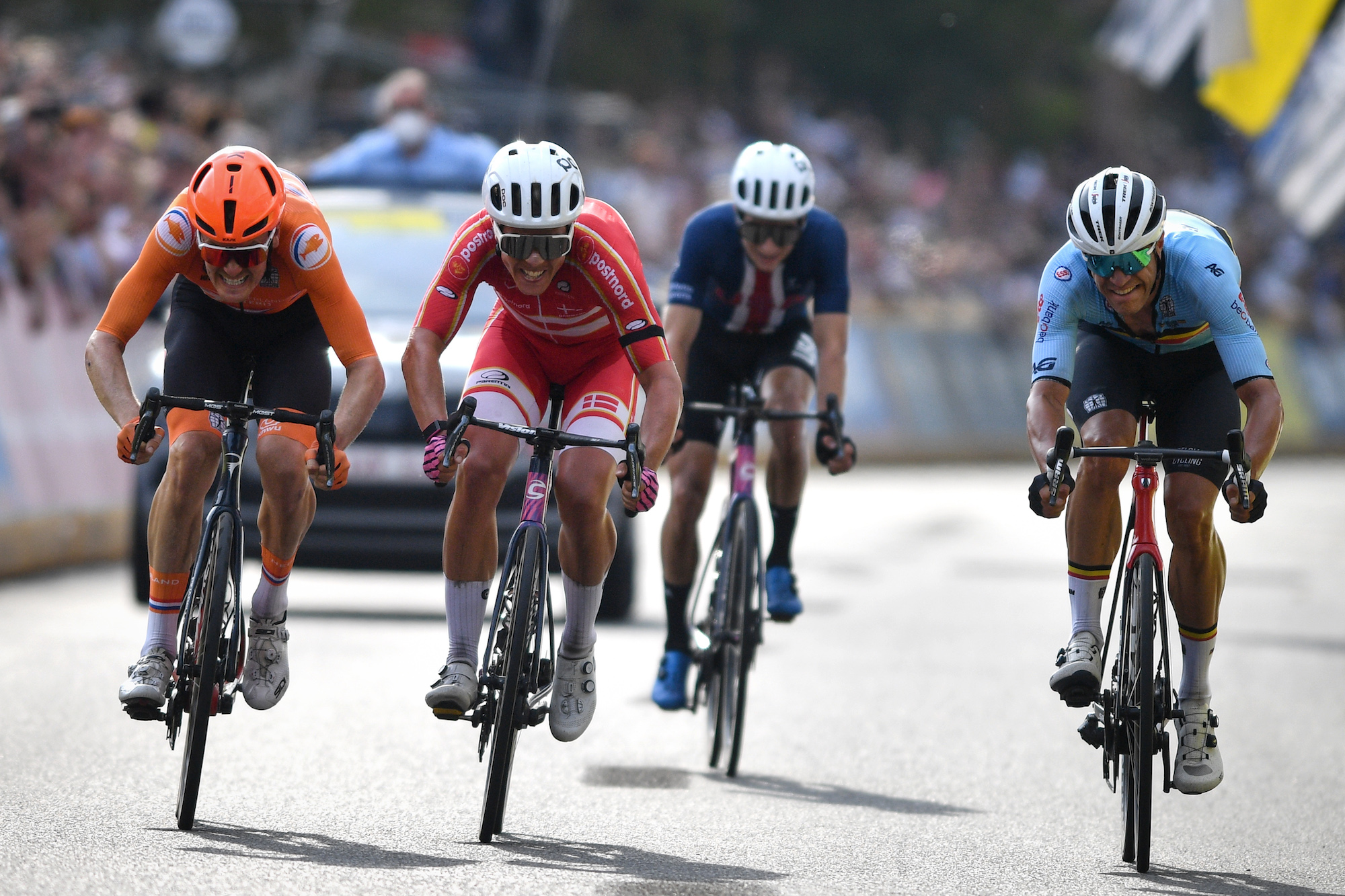
An open World Championships ended with silver and bronze medalists that you would have got very long odds for had you backed them a few weeks ago.
Michael Valgren’s odds will have plummeted within the last two weeks, during which time he won back-to-back semi-Classics in Italy, but prior to that the Dane didn’t look anywhere near being a contender, having gone over three years without even a victory. He’s very much back to his best now, and has at last re-found the form that saw him win Amstel Gold and Het Nieuwsblad in 2018.
Denmark always looked likely to be up there in the medal hunt given the unprecedented strength of their line-up, and indeed Valgren owes a lot to his teammate Kasper Asgreen, who did a superb turn to put Valgren in a position to attack and join a group that went clear on the Bekestraat over 50km from the finish, a group that turned out to be the decisive selection
There was little from Dylan van Baarle’s recent performances to suggest he would be a contender for a medal, but he peaked just in time to take silver. That might be because the Dutchman is such a selfless rider, usually seen riding in support of his Ines Grenadiers teammates in the Grand Tours and the Classics - given the way he won Dwars door Vlaanderen during the spring when given the chase to ride for himself, maybe his performance here shouldn’t come as much of a surprise.
He had been expected to ride another supporting role today in service of the Dutch’s star man Mathieu van der Poel, but, despite making all the moves, Van der Poel cut a far more reserved figure today, his usual irrepressible nature perhaps clipped by the lingering injury problems he contended with heading into the race.
That allowed Van Baarle to instead take the spotlight and get up the road for the Dutch, and the 29-year-old showed his qualities to win silver — arguably the biggest individual achievement of his career to date.
Belgium left medal-less despite strength
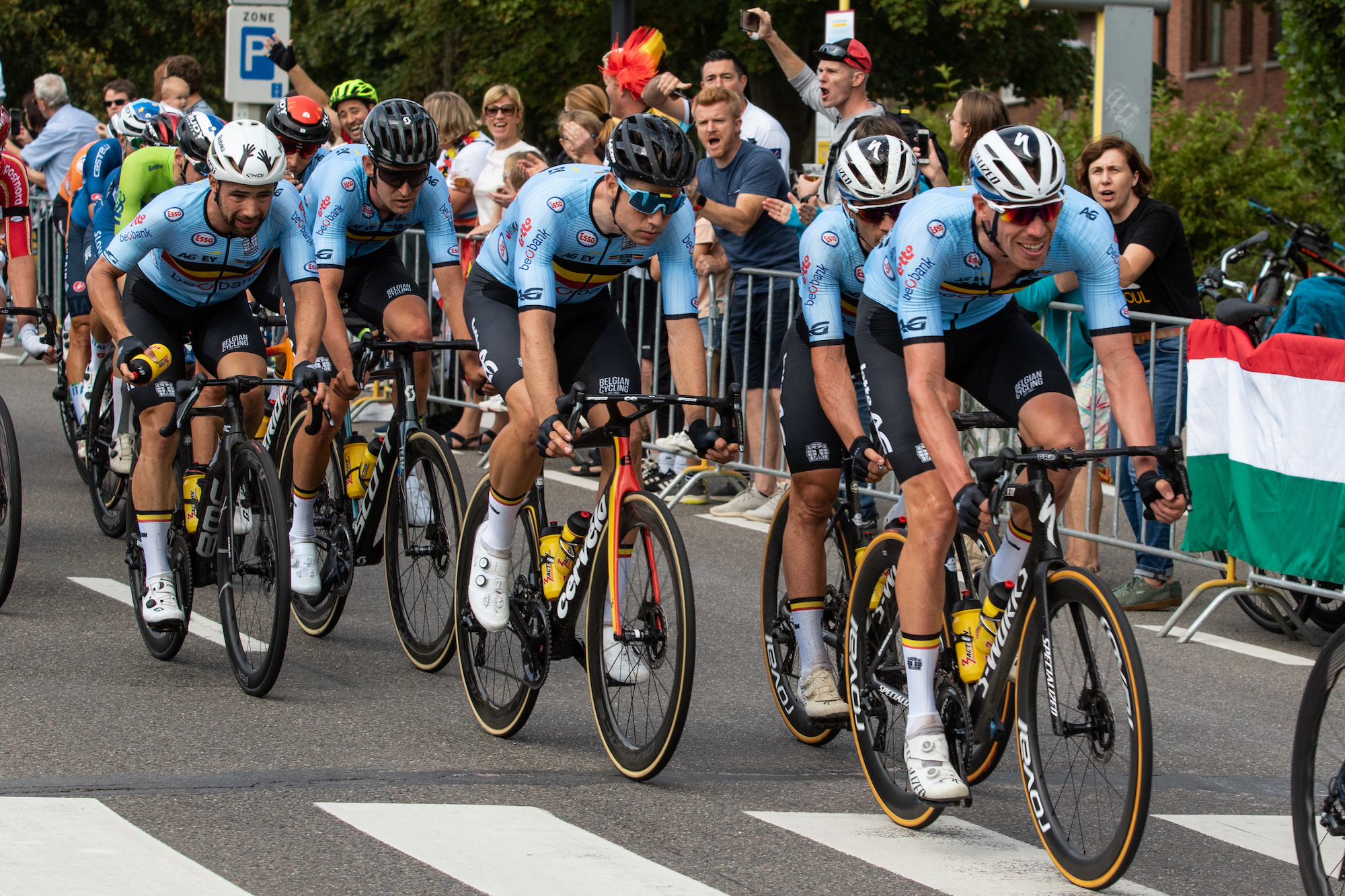
The Belgian team at the 2021 World Championships
The Belgian team was every bit as strong as expected, but ended up without a medal after things went wrong in the finale.
For the most part, they did succeed in controlling the race. They rode at the front of the peloton, and had Remco Evenepoel mark two dangerous groups that escaped up the road early on.
All the fears heading into the race about Evenepoel’s willingness to work for the team appeared to create a tetchy atmosphere, with teammate Tim Declercq seen shaking his head at the 21-year-old for apparently pulling too hard in the first breakaway group they had got themselves in early in the race. But Evenepoel ultimately did an excellent, selfless job for the team, marking moves when it was advantageous for them, then burying himself upon the group being caught in order to put Wout van Aert in contention for victory.
Things started to go wrong for the Belgians only when Evenepoel ran out of legs 25km from the finish and had to sit up. Van Aert was subsequently either unwilling or unable to follow Alaphilippe’s brutal attacks, and instead it was left to his one remaining team-mate, Jasper Stuyven, to counter-attack.
Even as the gold medal disappeared up the road, a silver medal at least appeared probable, with Stuyven on paper possessing the strongest sprint of the four-man group still in contention for the medals. But, as is often said, a sprint after over 250km of such tough racing is not like a normal sprint, and an exhausted Stuyven was only able to sprint for fourth.
Considering all the hype and expectations surrounding the Belgian team, and Wout van Aert in particular, on what was a home World Championships, fourth place is a bitter disappointment.
Pidcock finishes sixth, but could have been higher
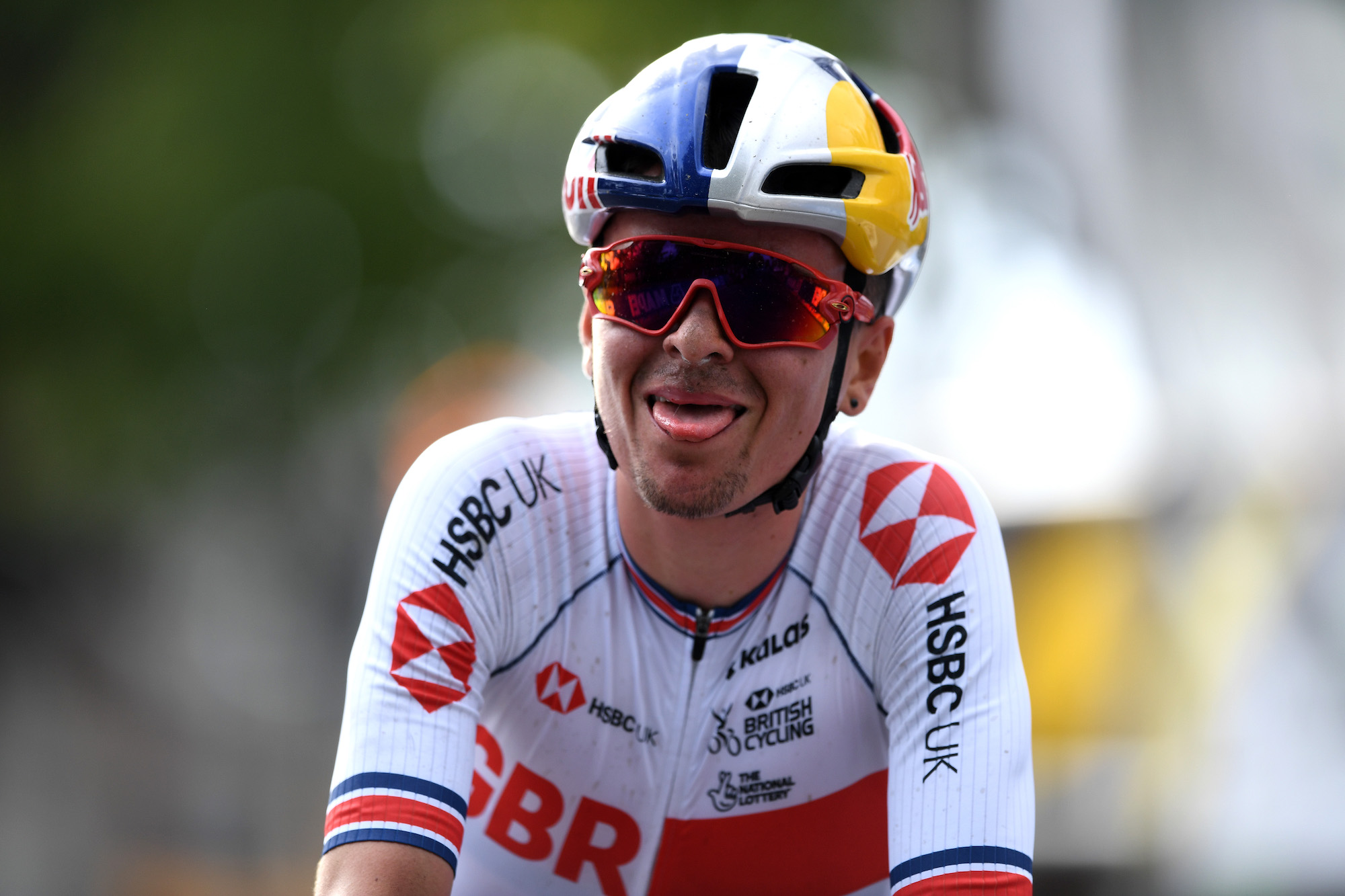
Tom Pidcock
Despite being one of the stars of the spring, and winning the very classic, Brabantse Pijl, that shared climbs with the Worlds route, Tom Pidcock went under the radar going into the World Championships.
The 22-year-old appeared well below his best form, apparently having eased up his training in the aftermath of winning gold at the Olympics mountain biking event. Instead, Ethan Hayter was the British rider we were getting excited about following his exceptional rides at the Tour of Britain and last week’s time trial.
But Pidcock reclaimed his senior status today, with Hayter and the others working for him when Britain chased down a move they missed early on, and was Britain's sole representative once the decisive 17-man selection was made.
It turned out Pidcock had great legs too, when he made a powerful attack on the final ascent of the Wijnpers, but he expressed his regret at having not made his move earlier — though he managed to drop every other rider in the group, Wout van Aert and Mathieu van der Poel included, the medals were then already up the road. Instead, Pidcock had to settle for a sixth-place finish.
Still aged just 22, and having only competed in one World Championships at senior level prior to 2021, he still has plenty of scope to learn and improve. Sixth is still a very good result, and he should have chances in the future to go better.

Thank you for reading 20 articles this month* Join now for unlimited access
Enjoy your first month for just £1 / $1 / €1
*Read 5 free articles per month without a subscription

Join now for unlimited access
Try first month for just £1 / $1 / €1
Stephen Puddicombe is a freelance journalist for Cycling Weekly, who regularly contributes to our World Tour racing coverage with race reports, news stories, interviews and features. Outside of cycling, he also enjoys writing about film and TV - but you won't find much of that content embedded into his CW articles.
-
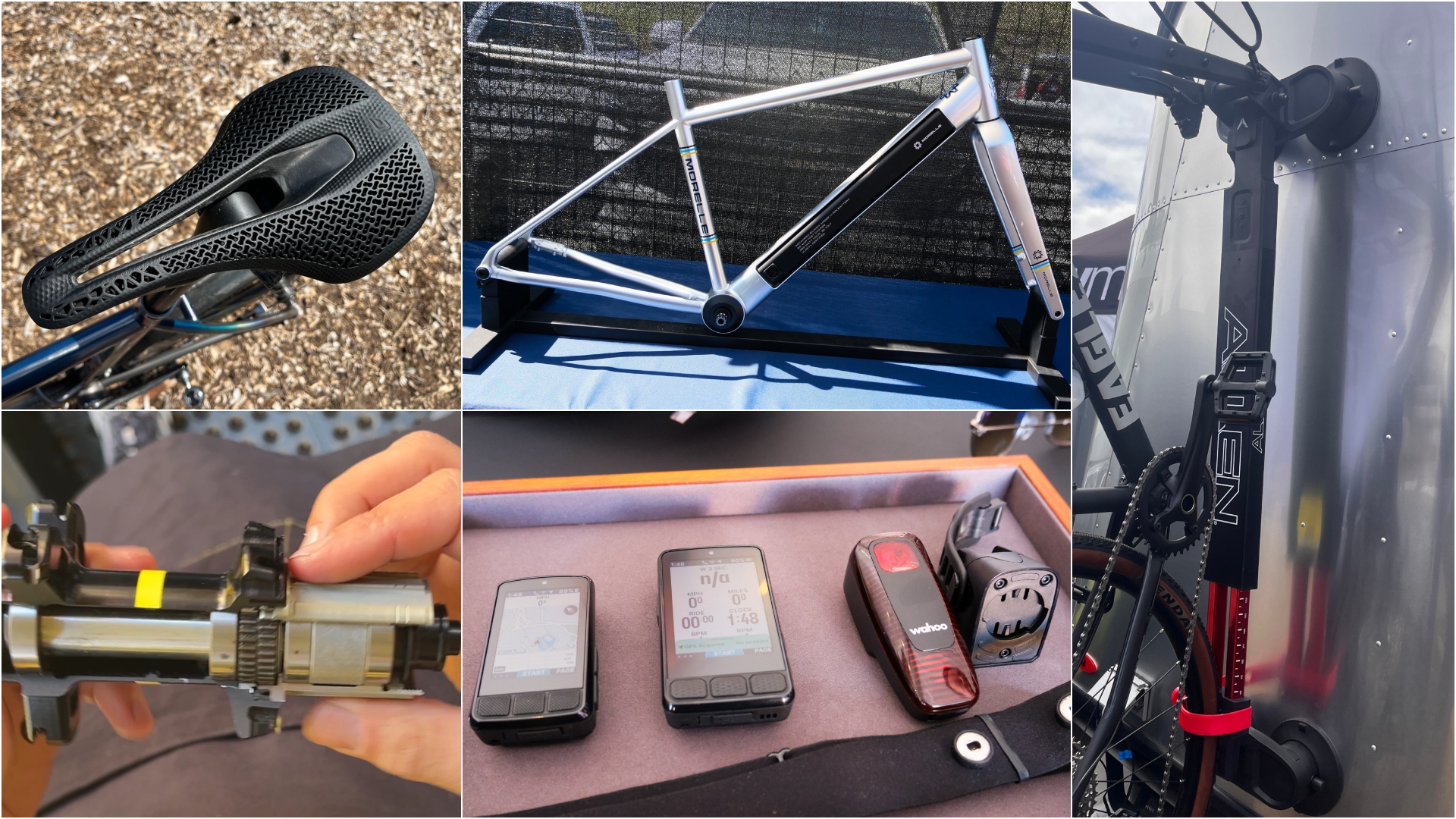 A bike rack with an app? Wahoo’s latest, and a hub silencer – Sea Otter Classic tech highlights, Part 2
A bike rack with an app? Wahoo’s latest, and a hub silencer – Sea Otter Classic tech highlights, Part 2A few standout pieces of gear from North America's biggest bike gathering
By Anne-Marije Rook
-
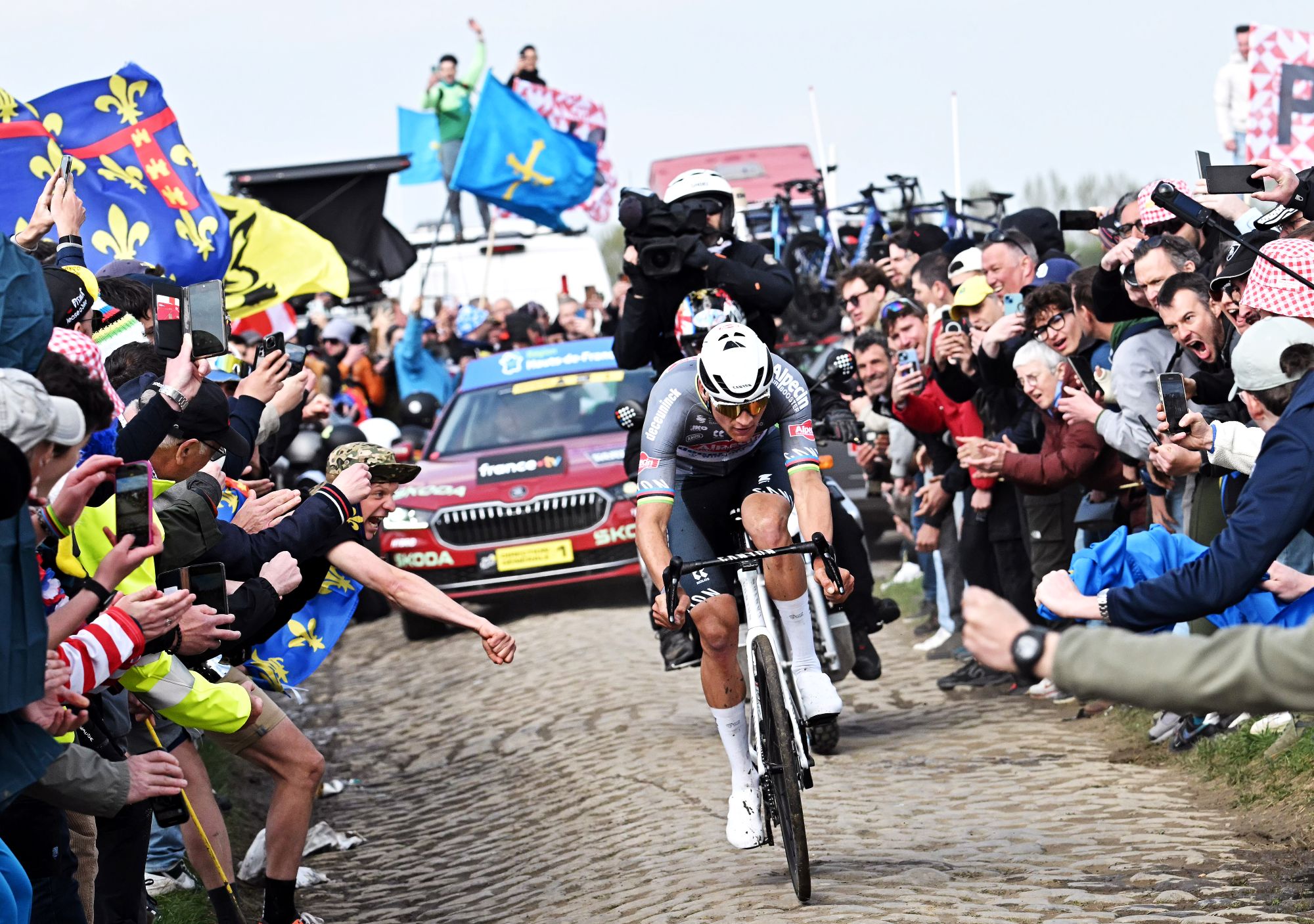 Cycling's riders need more protection from mindless 'fans' at races to avoid another Mathieu van der Poel Paris-Roubaix bottle incident
Cycling's riders need more protection from mindless 'fans' at races to avoid another Mathieu van der Poel Paris-Roubaix bottle incidentCycling's authorities must do everything within their power to prevent spectators from assaulting riders
By Tom Thewlis